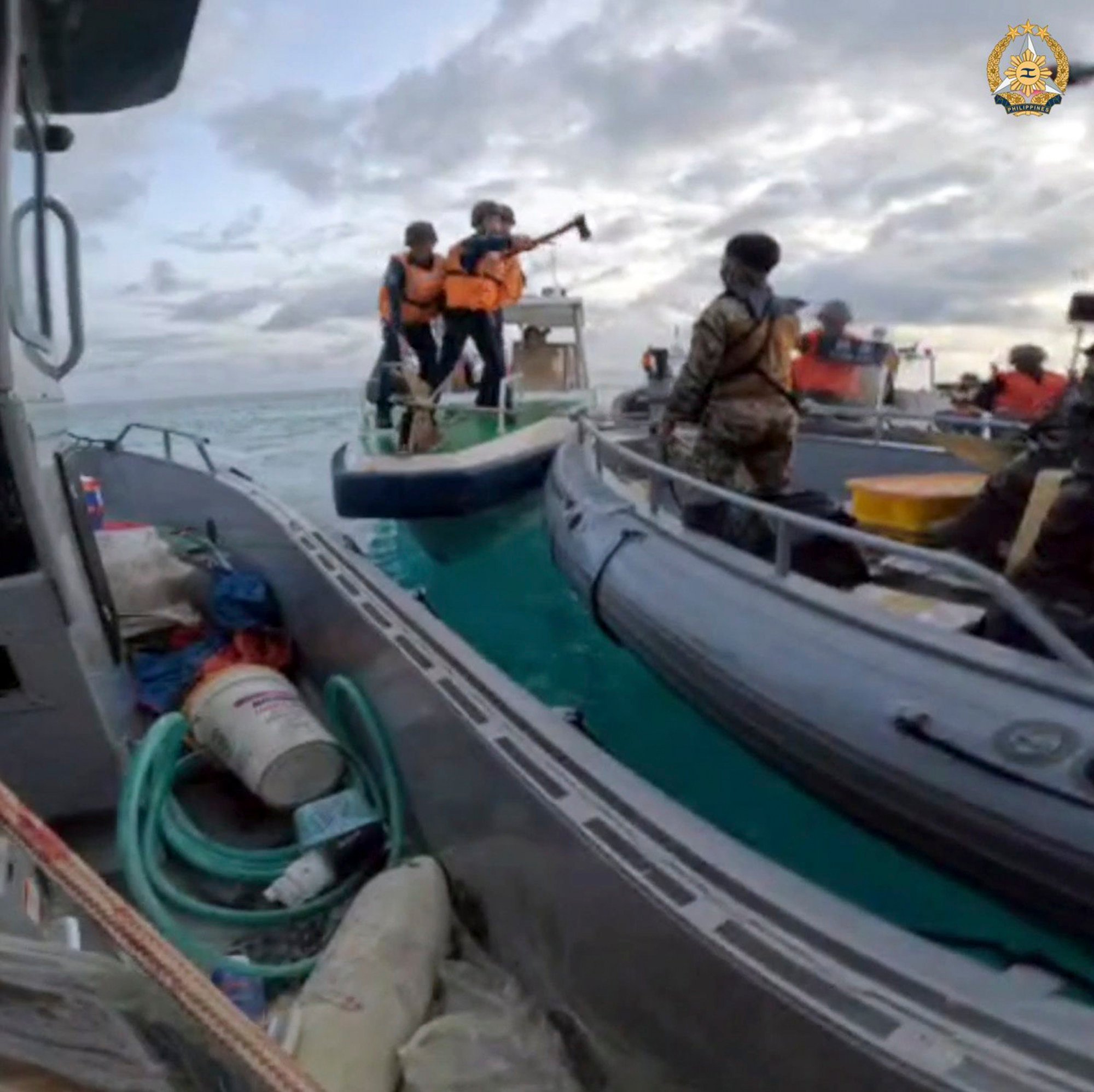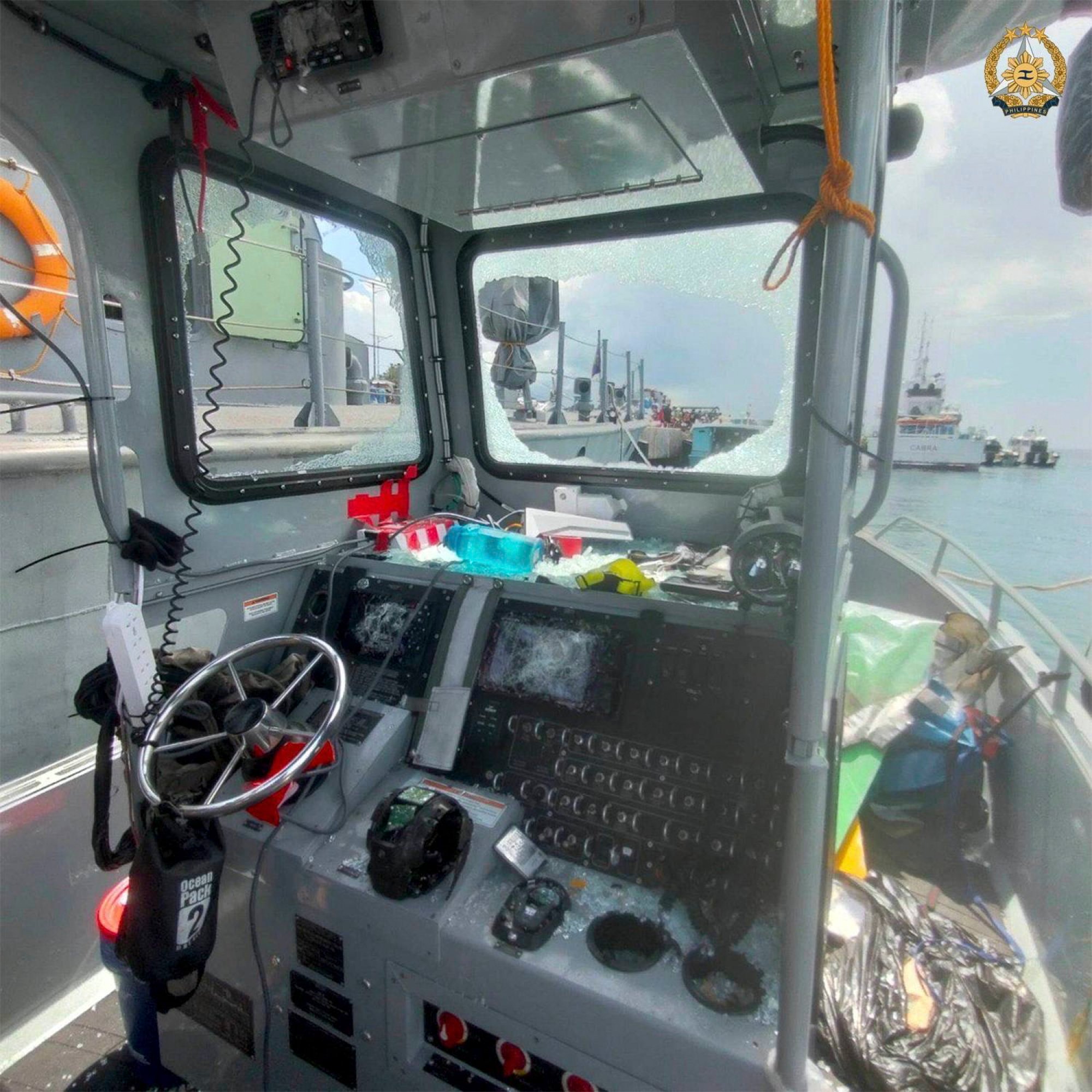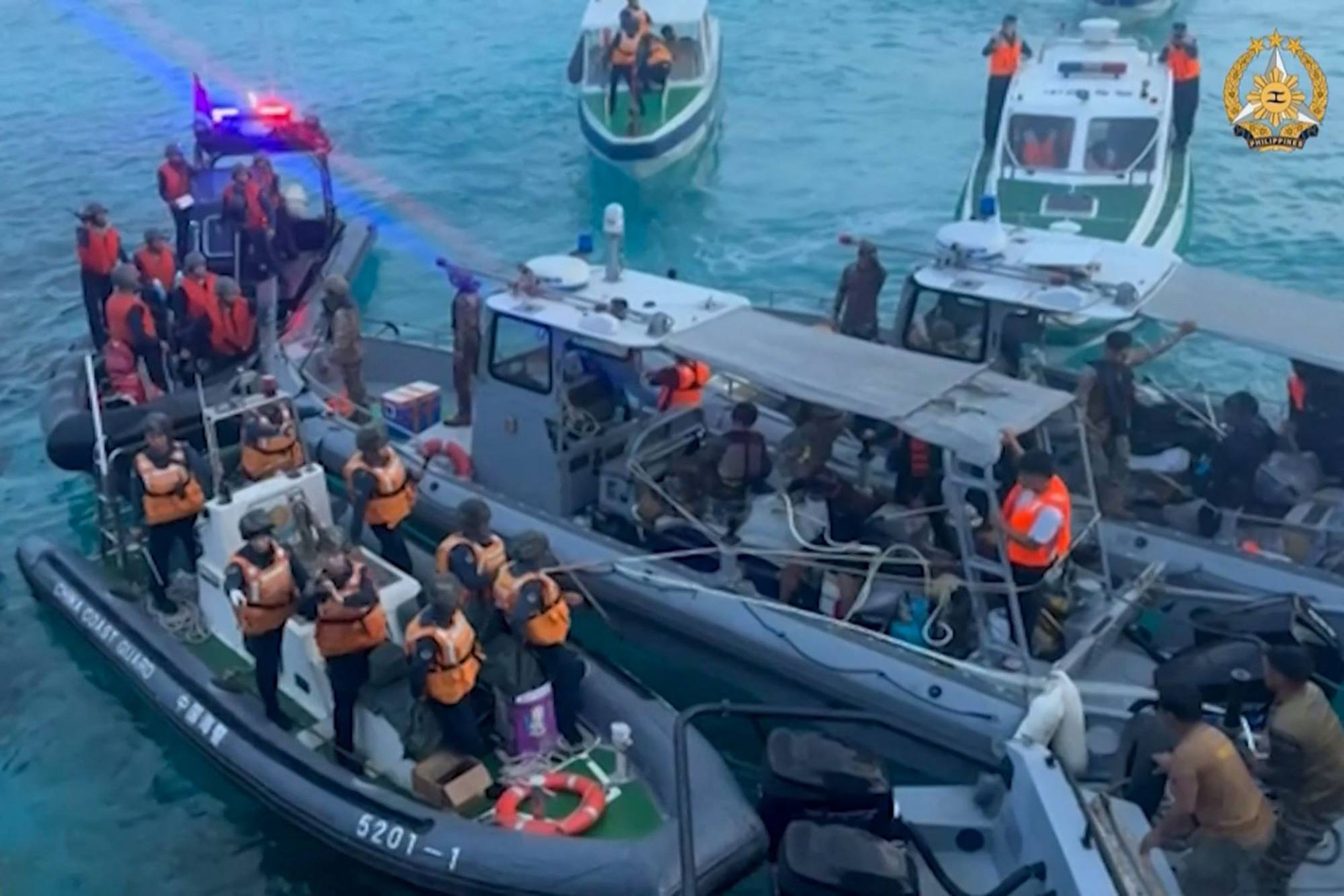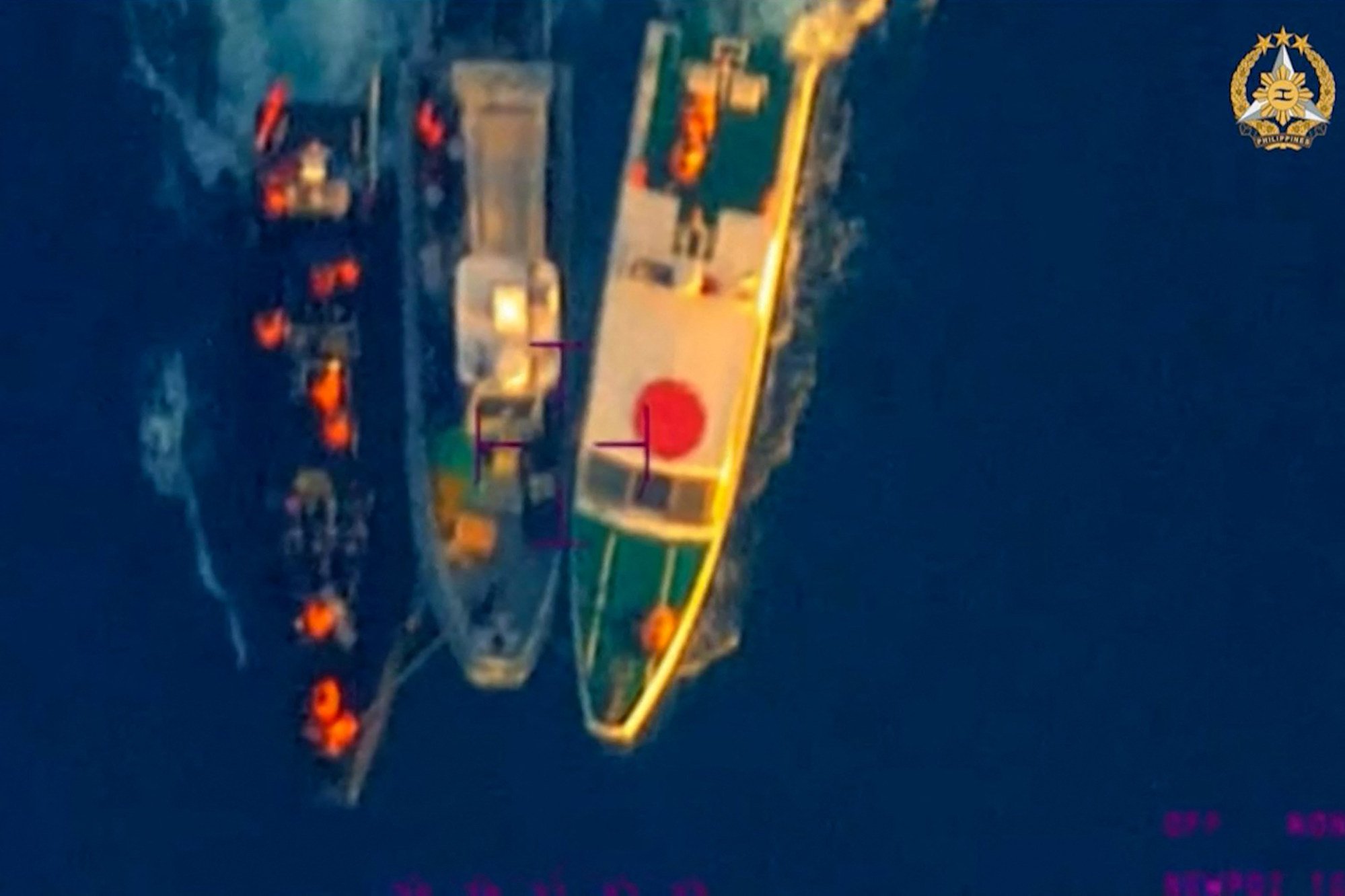“This is the first time that we saw the Chinese coastguard carry bolos, spears and knives … they were like pirates in their actions,” General Romeo Brawner Jnr, chief of staff of the Armed Forces of the Philippines, said during a press conference on Wednesday.
The military later released photographs – some of which showed Chinese coastguard personnel brandishing long knives and a pickaxe – and video clips of the incident.

The Philippine military reported that Chinese personnel boarded their vessels and confiscated weapons and other equipment from their sailors during the incident.
Rear Admiral Alfonso Torres, commander of the armed forces’ Western Command, which oversees operations in the West Philippine Sea, said their soldiers were under strict orders to follow a new “operational design” during rotation of troops and resupply missions to the BRP Sierra Madre in which “no firearms will be handled or shown by our personnel to the [Chinese] coastguard personnel”.
“We are doing that to avoid misperception that we are conducting an armed operation,” Torres said.
Brawner said this protocol was also followed by the troops stationed on BRP Sierra Madre, who were armed but did not use them. He added the navy’s objective was to “prevent war” and follow international law while bringing supplies to the BRP Sierra Madre troops.
Brawner said the new protocol was under review in light of Monday’s incident. Navy spokesman Commodore Roy Vincent Trinidad on Thursday said: “We have told our troops, use of force for mission accomplishment is not authorised unless in self-defence.”
The seven pieces of CAR-15 (Colt Automatic rifle-15) that the Chinese seized were disassembled and stored in gun cases for transport to BRP Sierra Madre, Brawner and Torres said.

Navy seaman first class Jeffrey Facundo lost his right thumb after a Chinese rigid hull inflatable boat went over the top of a Philippine rubber boat with the serviceman on board, Torres said. Facundo was awarded a medal for his service and told Brawner he was willing to return to duty.
Philippine navy personnel involved in the skirmish said the Chinese coastguard towed away the Philippine boats, which they punctured, destroyed the communication and navigational equipment and outboard motors, and “looted” the seven disassembled firearms and personal mobile phones.
“We are demanding that the Chinese return our rifles and our equipment. And we are also demanding from them to pay for the damage that they have caused,” Brawner said. “This is piracy … they boarded our boats illegally.”

Jeffrey Ordaniel, an associate professor at Tokyo International University’s Department of International Relations, told This Week in Asia the Philippines needed a new approach to counter China’s tactics.
“The Philippines should request [a] US Navy/Coast Guard escort for every [resupply] mission, with a caveat – escorts will stop once [Chinese] interference ends,” Ordaniel said. “Absent any meaningful response from the Philippines and its allies and partners, Beijing will simply continue to push the envelope and gradually change the status quo.”
Since the confrontation, more countries such as Australia, Sweden, Canada, the United Kingdom, the Netherlands, the European Union and New Zealand have issued statements of condemnation. But Ordaniel said “more statements that condemn Chinese behaviour at sea or mere rhetorical expressions of support for the Philippines will have very negligible impact”.
Ordaniel said China “is acting with impunity” and called on the Philippines and the United States to formulate an alliance response to show Beijing that “its bad behaviour at sea is resulting in more US military presence in the region”. Doing so would also allow Manila to maintain the status quo in the Second Thomas Shoal and withstand Chinese coercion, he added.

Collin Koh, a senior fellow at the Institute of Defence and Strategic Studies at the S. Rajaratnam School of International Studies in Singapore’s Nanyang Technological University, said what happened “should have qualified as armed attack – the use of weapons by the armed forces of one country against the other’s”.
The Philippines has a Mutual Defence Treaty with the US that requires both countries to act in the defence of the other should one be attacked. But Koh noted that President Ferdinand Marcos Jnr’s criteria for invoking the treaty “has to be somebody killed as a result of a wilful act. Nobody was killed in this latest fracas. We’re flirting with luck here”, he posted on social media platform X.
Former congressman Ruffy Biazon, who was vice-chair of the House of Representatives’ defence committee, agreed with Koh.
“In the hands of the military or even coastguard, the bolos and knives are weapons. Using them against persons or property to cause injury or death or damage is an attack. Define ‘Armed attack’ now, in the context of the MDT,” he said on X.
On Thursday, Philippine foreign secretary Enrique Manalo said he had discussed China’s “dangerous and irresponsible actions” with his American counterpart Antony Blinken.
Marcos Jnr has not issued any statement on the incident.

